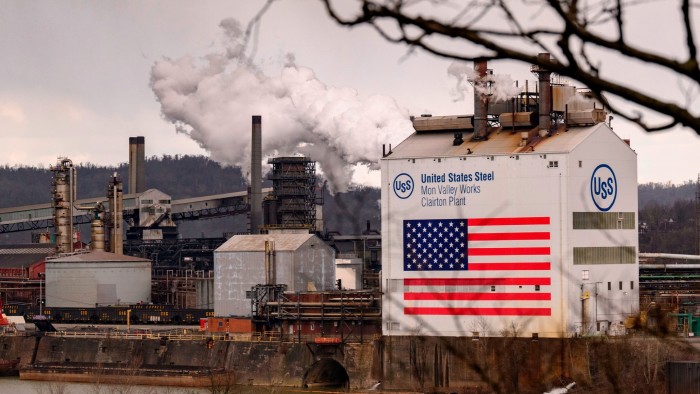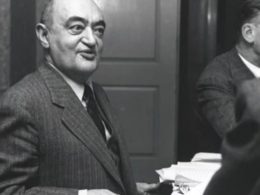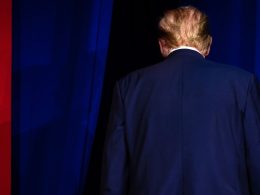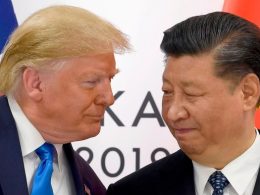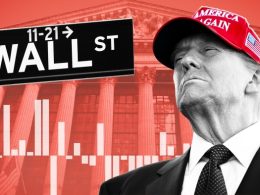Unlock the White House Watch newsletter for free
Your guide to what the 2024 US election means for Washington and the world
Brain rot, brat, bro-caster. All told, 2024 delivered a good crop of word-of-the-year fodder: the annual digest of what newborn vocabulary tells us about the year we are leaving behind and what we became in its clutches.
Just as revealing are the funerals: for words that either quietly perished or are entering 2025 at death’s door, seeping relevance from some fatal wound. “Friendshoring”, after a bruising 12 months and the ugly, eviscerating saga around Nippon Steel’s takeover bid for US Steel, cannot be much longer for this world.
Some will contend that friendshoring — the concept of rerouting supply chains through countries perceived as long-term reliable allies — was too buzzy for longevity. Others will argue that the word was so cynically crafted to disguise a with-us-or-against-us bloc formation, that it would always have been replaced with something grittier.
Still, for a few years, the phrase thrived as the rhetorical comeback to deglobalisation — exuding warmth in the early phase of cold war 2.0. It was a term born of crisis and disruption: first from the pandemic, then from Russia’s invasion of Ukraine and, above all, from the deepening consensus that US-China antagonism was permanent.
It was also a distinctive thing of the Biden administration. In 2022, US Treasury secretary Janet Yellen prominently used the word when setting out America’s new approach to trade. The US, she said, should favour reliance on countries that provoked no geopolitical worries for Washington, or which strongly adhered to a shared set of norms and values. Countries, she did not even need to say, like Japan.
The vulnerability of friendshoring, as a word, lies in America’s historic relationship with the word “friend”. In both diplomatic and business circles, many are fond of a quote attributed to Henry Kissinger. The cold war 1.0 secretary of state may not have used the exact line “America has no permanent friends or enemies, only interests”, but he came very close and it rings true. Its persistence as a way of interpreting US policy says much about how the country is often perceived.
In many respects, the Biden administration attempted to redress that perception, actively fortifying alliances and pushing the idea that, however consistently the “no permanent friends” line may have proven true in the past, you, country x, are the exception.
No country was better placed — or had greater incentive — to buy into that campaign than Japan. Tokyo knows its own vulnerabilities and American friendship is a necessary thing for an ageing, shrinking nation in an ever more risk-riddled part of the world. It also knows it is able to be a very good friend to the US.
Where the US has allowed its prowess in advanced manufacturing to be eroded in recent decades, Japan has largely maintained its edge. Its companies are very much the partners that American industry now needs. As Andrew McDermott, a Japan-focused investor, puts it: Sony remains the sole supplier of camera sensors to Apple; Tesla builds nothing without Japanese robots; Japanese suppliers provide nearly 40 per cent of Boeing’s most advanced parts.
And yet Japan’s pre-eminent steelmaker, Nippon Steel, has spent months struggling (apparently in vain) to convince both the Committee on Foreign Investment in the US (Cfius) and Biden himself that it is a fit buyer for US Steel.
The outgoing president has been clear that he is against the deal; the nine agencies that feed into Cfius were divided on the matter, and warned that the Japanese company could, through hypothetical cuts in domestic US steel production, pose a security threat.
Nippon has been accused, by some, of naivety, for fighting for its $15bn bid in an election year, in an industry with wildly disproportionate political heft. That misdirects blame and underplays the concession that Japan probably feels it has earned.
Biden’s administration had spent the better part of three years not just accentuating the criticality of strategic, industrial and ideological alliances, but doing so in the explicit language of friendship. At the first thorny test of that, the US has again allowed the huge caveats that come with its friendship to overwhelm the situation — even where its interests almost certainly lie in allowing Nippon to invest in US manufacturing. And all this before Donald Trump recasts American friendship in his own mould.
The Nippon deal may, somehow, muddle through; but the damage to America’s friendship rhetoric will remain severe. Friendshoring as a concept may persist; friendshoring as a word is too cosy to survive the reality that Japan has uncovered.
Source link





